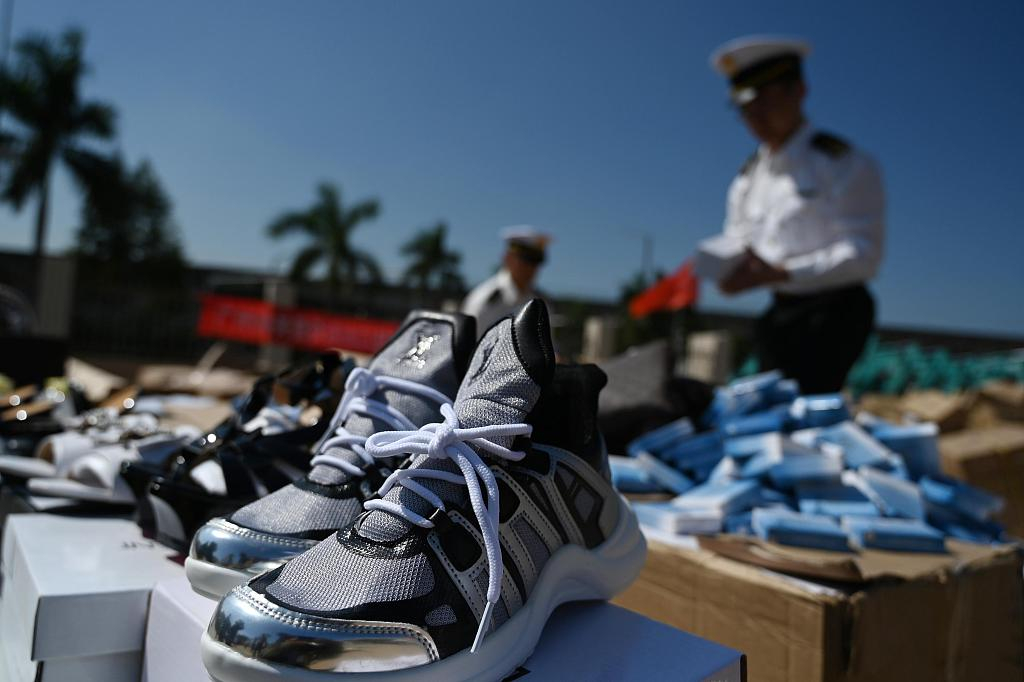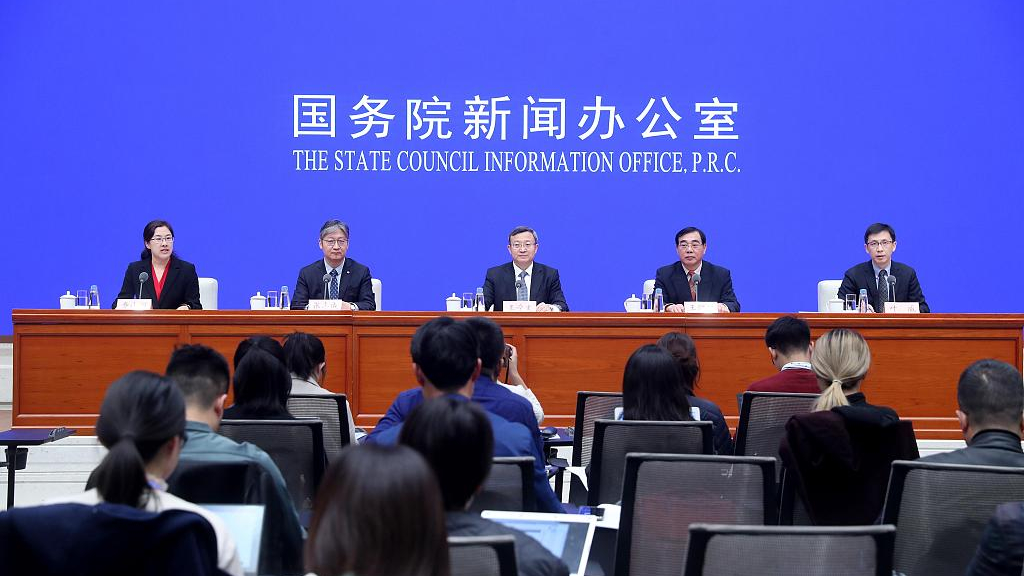
Guangzhou customs seized more than 2.31 million goods suspected of intellectual property rights infringement in three months, October 29, 2019. /VCG Photo
Guangzhou customs seized more than 2.31 million goods suspected of intellectual property rights infringement in three months, October 29, 2019. /VCG Photo
Editor's note: Sun Yang is an associate professor at the China University of Political Science and Law. This article reflects the author's opinion and not necessarily the views of CGTN.
The protection of intellectual property (IP) in China has long been a major focus for decades. As a global consensus, advancing intellectual property protection is generally beneficial to furthering international trade. With the latest institutional developments in intellectual property protection, China demonstrates to the world that it is a promising environment for both domestic and international business.
On October 22, the State Council of China publicized the Regulation on Optimizing Business Environment with special concentration on enhancing high-quality business environments through the protection of market entities' property rights. It was the first time an official document from the central government clarified the correlation between IP protection and the business environment.
Article 15 provides that the State incorporates punitive damages into national intellectual property system to promote the level of intellectual property protection. This article was specifically designed to remove the barriers to better business environments through punitive damages. Intellectual property infringements in the market deprive market entities of reasonable profits, which results in "market failure." As a response, the punitive damages punish those who infringe on people's IP by demanding their disgorgement of illegal profits and seeking to prevent future infringement with deterrent effects. Consequently, the free riders in the course of market transactions must think twice before they step into intellectual property infringement.
In addition to the regulation, the latest amendments to trademark law forbid trademark registration with malice. Trademark applicants with the purpose to misappropriate the trademark value or goodwill of market entities would be deprived of their eligibility of trademark registration. This is especially effective as a precaution to preclude undesirable intervention on the sale of goods and services by way of infringement.
Domestic investors and market entities are not the only beneficiaries in the system; foreigners do enjoy substantial benefits from three major perspectives, regardless of individuals or corporations. The first is equal protection within the business environment. So long as a foreigner meets the statutory rules in intellectual property law, the China IP administrative offices would issue a valid patent or a trademark. Such equal protection only demands that the foreigners' home country and China enter into an international IP treaty or have a bilateral agreement.

The State Council Information Office of the People's Republic of China held a regular briefing meeting on policies and measures to better utilize foreign capital, October 29, 2019. /VCG Photo
The State Council Information Office of the People's Republic of China held a regular briefing meeting on policies and measures to better utilize foreign capital, October 29, 2019. /VCG Photo
The second benefit comes from a simplified version of the application procedure. If a foreigner has a habitual residence or an established business in China, the individual can directly apply for a patent or a trademark without assistance from a designated agency.
The final benefit is the low cost of application. A foreign applicant can apply for a waiver or deduction on application fees, reviewing fees as well as the fees of reexamination. All rules are identically applicable to domestic applicants.
With the Chinese government's improvement of intellectual property protection, an optimized business environment promises a bright future for domestic and foreign investors and market entities. But despite the progress, something more could be done.
To the Chinese government, the intellectual property administration's institutional reform keeps IP licensing and protection efficient. Simplifying the application procedures and lowering the costs are the major scenarios. The whole society will be willing to participate in the process of IP creation when time and expenses are significantly lower than before. Meanwhile, the government should reinforce law enforcement against IP infringement. This could be achieved through administrative regulations by the cooperation with business intermediaries.
As to investors and market entities, one scenario is to abide by the IP laws and regulations of the designated countries, securing IP rights for all intellectual products before initiating business in a country. Registering a trademark, for instance, before marketing the goods and services. This could be achieved through international an IP registration system regulated by the World Intellectual Property Organization. When IP infringement occurs, do not hesitate to file an IP lawsuit against the infringers. An IP lawsuit is a reliable weapon to punish and deter future infringement.
The education of IP protection is comprehensive and long-term. Each level of schooling should incorporate IP protection content into course materials. Higher education departments, such as law schools, could provide a short-term IP training course for practitioners. Also, combining a personal credibility system with IP infringement, all IP infringers who commit a right's infringement for the first time can resume his or her full personal credibility by participating IP training course in the local community. Under the circumstances, a clean and better business environment will come into being.
(If you want to contribute and have specific expertise, please contact us at opinions@cgtn.com)